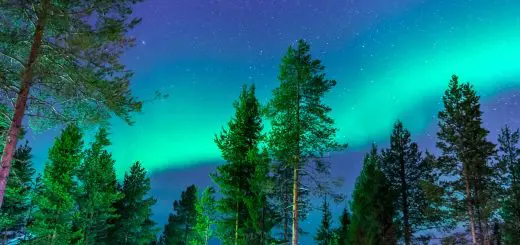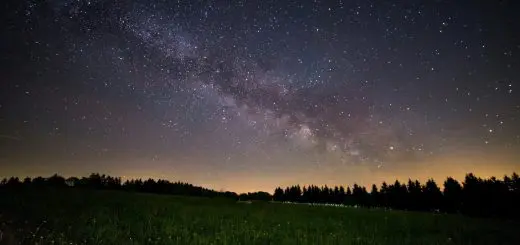Wildlife Conservation Jobs: How to Start

Looking for more amazing products? Check out our online store and explore our collection here! Happy shopping!
Before diving in, please note: This post is for informational purposes only. If you’d like to know more about how we approach topics, feel free to check out our friendly Disclaimer Page.
Hey there, amazing readers! 
We’re committed to delivering quality posts, and your support (even just sticking around despite the ads) means everything to us. So, bear with us, and thanks for helping us keep the good vibes rolling. Now, on to the fun stuff!
TRANSLATE BUTTON AT THE END OF THE ARTICLE
Introduction to Wildlife Conservation Jobs
Wildlife conservation jobs are vital in protecting our planet’s biodiversity and ensuring the survival of various species in their natural habitats.
These roles involve working to preserve and restore ecosystems, monitor wildlife populations, conduct research, and educate the public about the importance of conservation.
If you have a passion for wildlife and the environment, pursuing a career in wildlife conservation can be incredibly rewarding.
Importance of Wildlife Conservation
Wildlife conservation is crucial for maintaining the balance of ecosystems and preserving biodiversity.
By protecting wildlife and their habitats, we can ensure the health of our planet and secure a sustainable future for future generations.
Conservation efforts also help prevent the extinction of endangered species, protect natural resources, and combat climate change.
Without wildlife conservation, many species would face extinction, leading to imbalances in ecosystems and potentially devastating consequences for the environment.
Education and Training Requirements
To start a career in wildlife conservation, it is essential to have a strong educational background in biology, ecology, environmental science, or a related field.
Most entry-level positions require at least a bachelor’s degree, while higher-level roles may necessitate a master’s or Ph.D.
Additional training in wildlife management, conservation biology, or research methods can also be beneficial.
Hands-on experience through internships, fieldwork, or volunteering is valuable in gaining practical skills and knowledge in the conservation field.
Skills Needed for Conservation Jobs
Successful wildlife conservation professionals possess a combination of technical skills, such as data analysis, field research, and GIS mapping, as well as soft skills like communication, teamwork, and problem-solving.
Attention to detail, critical thinking, and a passion for environmental conservation are also essential traits for individuals working in this field.
Adaptability, resilience, and a willingness to learn are crucial qualities for navigating the challenges of wildlife conservation careers.
Types of Wildlife Conservation Careers
There are various career paths within the field of wildlife conservation, including wildlife biologist, conservation scientist, park ranger, environmental educator, wildlife rehabilitator, and conservation officer.
Each role has its unique responsibilities, from conducting research and monitoring wildlife populations to implementing conservation projects and educating the public.
Whether you prefer working in the field, the lab, or the classroom, there are opportunities to make a difference in wildlife conservation.
Job Opportunities in Conservation
Wildlife conservation jobs can be found in government agencies, non-profit organizations, research institutions, zoos, wildlife reserves, and environmental consulting firms.
Positions may involve fieldwork, data analysis, policy development, education outreach, or community engagement.
Job opportunities can vary based on location, specialization, and level of experience.
Networking, attending conferences, and staying informed about current trends in conservation are essential for finding job opportunities in this competitive field.
Where to Find Wildlife Conservation Jobs
To find wildlife conservation jobs, you can search online job boards, conservation websites, government agency websites, and professional networking platforms.
Joining conservation associations, attending career fairs, and reaching out to conservation professionals can also help you discover job openings and make valuable connections in the field.
Volunteer work and internships are excellent ways to gain experience, build your resume, and increase your chances of securing a paid position in wildlife conservation.
Tips for Landing a Conservation Job
When applying for wildlife conservation jobs, tailor your resume and cover letter to highlight your relevant skills, experience, and passion for conservation.
Prepare for interviews by researching the organization, practicing common interview questions, and showcasing your knowledge of conservation issues.
Emphasize your commitment to environmental stewardship, willingness to work in challenging conditions, and ability to collaborate with diverse stakeholders.
Networking with professionals in the conservation field can also open doors to job opportunities.
Internships and Volunteer Opportunities
Internships and volunteer opportunities are invaluable for gaining hands-on experience, developing practical skills, and building a professional network in wildlife conservation.
Many organizations offer internships for college students and recent graduates to work on conservation projects, conduct research, and assist with fieldwork.
Volunteering at wildlife centers, nature reserves, or environmental organizations can provide insight into different aspects of conservation work and help you explore potential career paths.
Networking in the Conservation Field
Networking is essential for advancing your career in wildlife conservation.
Attend conferences, workshops, and seminars to meet fellow conservation professionals, researchers, and potential employers.
Join conservation associations, volunteer for conservation projects, and engage with online conservation communities to expand your network.
Building relationships with mentors, collaborating on conservation initiatives, and sharing your expertise can lead to job opportunities, collaborations, and professional growth in the conservation field.
Salary and Benefits in Conservation Jobs
Salaries for wildlife conservation jobs can vary based on the position, location, organization, and level of experience.
Entry-level roles in wildlife conservation typically offer lower pay, while senior positions or specialized roles may command higher salaries.
Government agencies, research institutions, and larger conservation organizations often provide competitive salaries, benefits packages, and opportunities for career advancement.
Many conservation professionals are motivated by their passion for wildlife and the environment rather than monetary rewards.
Challenges in Wildlife Conservation Careers
Despite the importance of wildlife conservation jobs, there are challenges and obstacles that professionals in this field may face.
These challenges include limited funding for conservation projects, political and social pressures, habitat destruction, climate change, and conflicts between human communities and wildlife.
Conservationists must navigate these complexities, advocate for sustainable solutions, and work collaboratively to address conservation issues effectively.
Persistence, creativity, and a commitment to conservation goals are essential for overcoming these challenges in wildlife conservation careers.
Conclusion
In conclusion, wildlife conservation jobs offer a rewarding and impactful career path for individuals passionate about protecting the environment and preserving biodiversity.
By pursuing a career in wildlife conservation, you can contribute to the conservation of endangered species, restoration of ecosystems, and education of communities on environmental issues.
With the right education, skills, and determination, you can start a successful career in wildlife conservation and make a difference in the conservation field.
Remember to stay informed, network with professionals, and seize opportunities to gain experience and advance your career in wildlife conservation.

The Enlightenment Journey is a remarkable collection of writings authored by a distinguished group of experts in the fields of spirituality, new age, and esoteric knowledge.
This anthology features a diverse assembly of well-experienced authors who bring their profound insights and credible perspectives to the forefront.
Each contributor possesses a wealth of knowledge and wisdom, making them authorities in their respective domains.
Together, they offer readers a transformative journey into the realms of spiritual growth, self-discovery, and esoteric enlightenment.
The Enlightenment Journey is a testament to the collective expertise of these luminaries, providing readers with a rich tapestry of ideas and information to illuminate their spiritual path.
Our Diverse Expertise
While our primary focus is on spirituality and esotericism, we are equally passionate about exploring a wide range of other topics and niches 

To ensure we provide the most accurate and valuable insights, we collaborate with trusted experts in their respective domains 
Our blog originally focused on spirituality and metaphysics, but we’ve since expanded to cover a wide range of niches. Don’t worry—we continue to publish a lot of articles on spirituality! Frequently visit our blog to explore our diverse content and stay tuned for more insightful reads.
Hey there, amazing reader! 
Check out our store here and take a peek at some of our featured products below! Thanks for being awesome!











